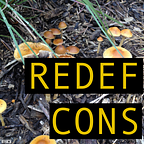Don’t Call Me An Environmentalist
Yes, I am an environmentalist — depending on what you mean. I do what I can to use resources wisely and live sustainably. I have an activist side that signs petitions and writes to politicians. I think about the environment, write about the environment, and work for a better planet.
However, you might have something else in mind.
The Aesthetic Environmentalist
Wearing Patagonia apparel, drinking organic tea, and shopping at Whole Foods does not automatically translate into environmentalism. Those decisions are more sustainable than many alternatives, but lifestyle choices are not enough. Given the massive challenges that humanity faces — climate change, decreasing biodiversity, energy issues — an individual that looks and eats like an environmentalist (but also owns an ivory bracelet or drives a Hummer) cannot adequately contribute to a solution. Radical institutional, systemic, and global change takes more than feel-good measures. As important as it is to take short showers, water crises are ultimately the product of poor incentive structures, outdated policies, and histories of misuse. These days, lifestyle choices are a start, but being content with this version of environmentalism is dangerous.
The Superior Environmentalist
Superiority wears many masks. The first and most obvious is annoyance. Arrogant environmentalists give the movement a bad name. After all, the environment affects everyone. Environmental work should try to foster equality and justice: clean air and water as a right, access to safe green spaces for all, and limited exposure to environmental harms — regardless of geographic location, class, race, gender, or any other factor. This relates to classism, a more insidious form of superiority. Buying locally grown, organic, GMO-free vegetables at a premium is not comparable to a food insecure family buying mass-produced, cheap, preservative-filled food. Having a larger budget does not equate to being a better environmentalist, but condescension continues to permeate environmental conversations. Next, prioritizing the earth over people is not a sign of enlightenment. Anthropocentric environmentalists are environmentalists, too. Finally, the most nuanced form of superiority is feigning perfection. Even if an environmentalist is doing the maximum amount possible for the planet, no one can escape some degree of hypocrisy. Directly or indirectly, everyone benefits from something that harms the environment, and that’s okay! The most important thing is to keep striving for a better world — not to become hopeless or pretend to be perfect.
The Clueless Environmentalist
The environmental movement is filled with myths. Some environmentalists support nuclear energy and some don’t. Some advocate for GMOs and some want to ban them. Often, there are no correct or even clear answers, and yet, some people follow formulaic views in order to capture the title of environmentalist. Thoughtlessly taking stances is precisely what environmentalism does not need. The complexity of environmental issues requires deep and critical thought that goes beyond common ideology and a pure love of nature.
The connotations of “environmentalist” have smothered the word, leaving nothing to describe someone who cares about the planet and the people living on it. “Conservationist” has devolved as well. I am a conservationist, but I’m not an old, wealthy, white man who loves scenic views and wants to save Africa. What sounds like neutral language has become problematic, undermining the seriousness of the movement and the challenges it’s addressing.
Am I an environmentalist? Yes. But don’t call me one unless we both know what it means.
******************************************************************Originally published on redefineconservation.com. Thanks for reading!
